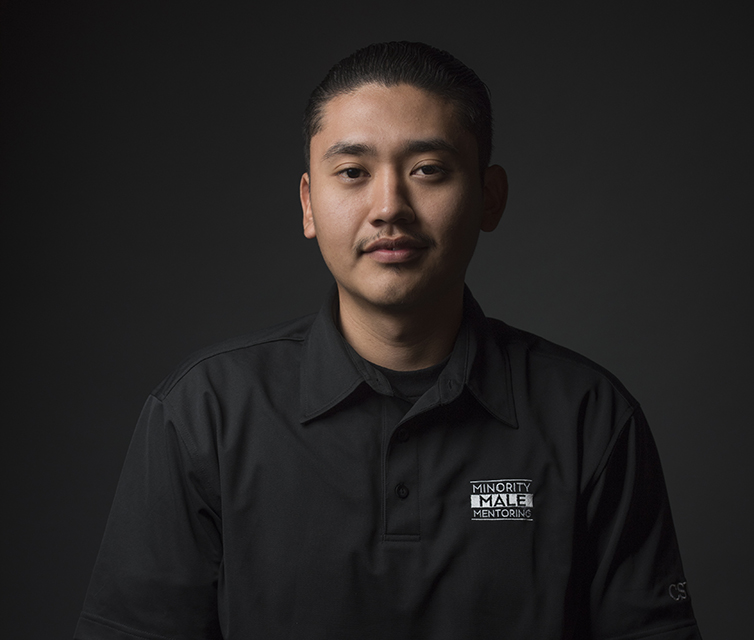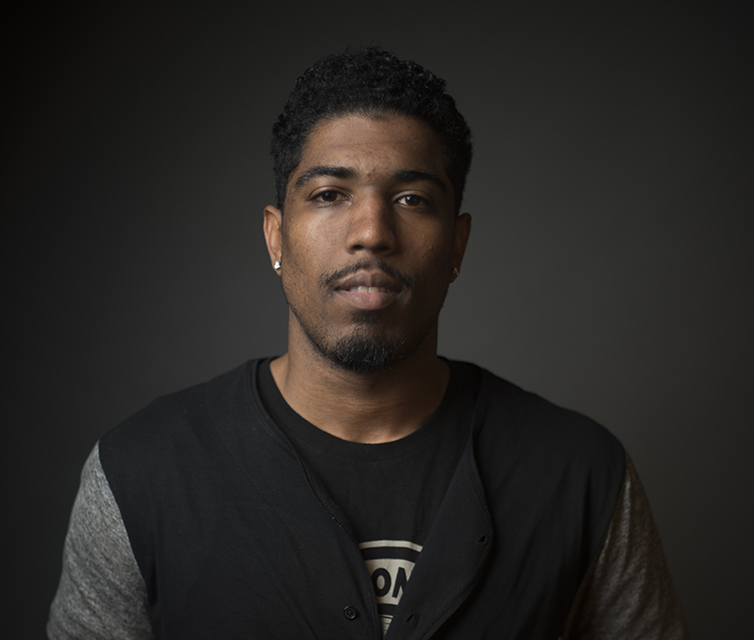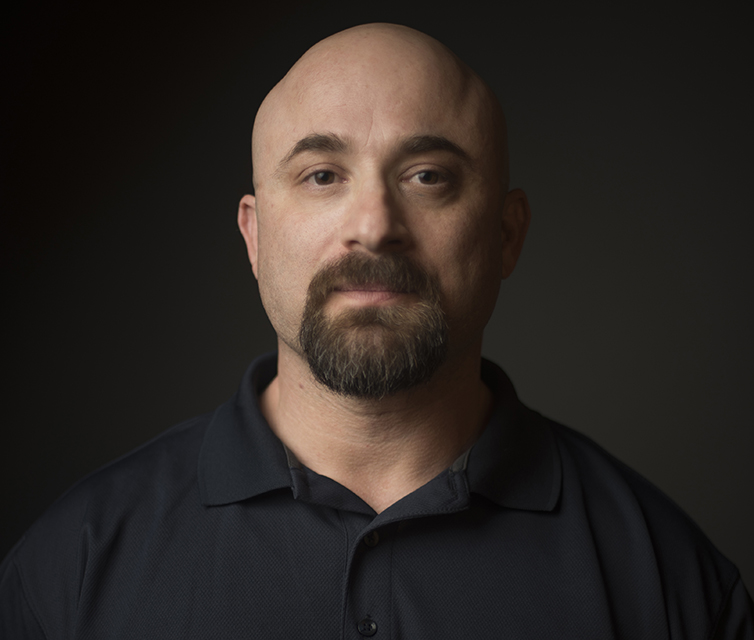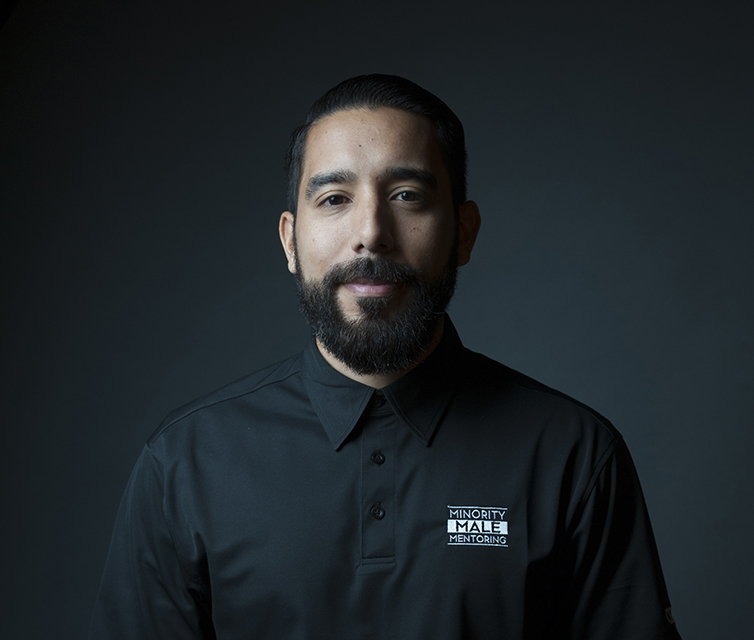M3 Aims to Increase Graduation Rate for Minority Males by Encouraging Mentorship
David “Chino” Contreras was born in Pacoima to parents who emigrated from Mexico. He was raised in a single-parent household, one in which no one else had gone to or even applied for college.
Like many first-generation college students, Contreras struggled during the college application process. Once he got to California State University, Northridge, he would begin to learn how to navigate successfully through college even though he still felt he didn’t belong.
In an effort to surround himself with support, he joined Minority Male Mentoring (M3) during fall 2016. M3 is a program on campus designed to help minority males succeed in college and in their career.
According to the National Center for Education Statistics, only 34.7 percent of African-American males, 35.8 percent of American Indian males, 46.7 percent of Latino males and 49.5 percent of Pacific Islander males graduate within six years after starting college — compared to 57.7 percent of white males.
The brainchild of Alejandra Acuña in the Department of Social Work, M3 aims to increase the graduation rate of males of color through various pathways.
“M3 sponsors focus groups, basketball pickup games, groups for students about how to deal with stress so it doesn’t get in the way of learning and relationships, and one-on-one mentoring,” Acuña said.
Acuña and colleagues established M3 after seeing, year after year, an overwhelming need for a program that increases graduation rates of males of color, she said.
“We were concerned about the college graduation rates and opportunities for male students of color — it’s a nationwide problem and we wanted to act locally to support CSUN students,” Acuña said. “Based on our own college experiences, [M3 mentors] know how hard it can be to succeed, so we wanted to pass on what we’ve learned to this generation.”
Some refer to this passing on of knowledge as “mentoring.”
One-on-One Mentoring
When asked how his mentors had helped him throughout his personal and academic development Contreras said, “I could honestly write a book. My mentors are the only ones who could understand me, who could understand my background, who give that helping hand without judging.”
Boris Ricks, CSUN assistant professor of Political Science, is an M3 mentor. A South Central native, Ricks received his B.S. in Criminal Justice from Mississippi Valley State University, where he played football with Hall of Famer Jerry Rice.
After earning his bachelor’s degree, Ricks continued to strive toward his educational goals and obtained his Masters of Public Administration (MPA) from the University of Mississippi as well as his M.A. and Ph.D. in Political Science from the University of Southern California.
The political science professor said he was able to accomplish this by “setting out goals and focusing on developing academically, athletically and socially.”
Ricks also said he values mentoring because it has been present at all points in his life, and expressed that he wouldn’t have reached his goals without it.
“My first experience with mentorship really began as a youth growing up in South Los Angeles,” Ricks said. “Mentoring and/or coaching has always played a role in my development as a person and as a college student.”
Now that he has realized his dreams, Ricks hopes to help young men of color set up and accomplish their goals.
“You have to keep your eyes on the prize,” Ricks said. “Being patient, focused and disciplined — which are some of the things we try to impart in M3 students — will help students succeed.”
Transcendence
Terrell Funches ’17 (Sociology) is also participant of M3. A recent graduate of CSUN, Funches thrived through the sense of community that M3 gave him. One of his primary goals in getting his degree, he said, was transcending the societal beliefs of minority males, and African-Americans in particular.
“Being an African-American male adds more pressure because our society already places a stereotype that African-Americans are lazy or don’t want to get their degrees,” Funches said. “I want to break that stereotype.”
Funches was a transfer student majoring in social work and said that his M3 mentor, Abel Martin, has been a huge help to him in achieving his academic goals.
“M3 in general has been very helpful,” he said. “One of the mentors, Mr. Abel Martin, showed me the path [to success] and told me what the program was really about. He also offered me resources that I could use on campus.”
The goal of recruiting minority males for M3 is tricky in that most young people, minority males in particular, stigmatize asking for help or guidance. Many CSUN students, like Contreras, are first-generation college students and have had to navigate their respective academic journeys predominantly alone.
M3 aims to help students realize that asking for guidance, support and mentorship is not weakness, but an important growth opportunity — one that will pay dividends not only throughout their college years, but also through their professional lives.
Basketball Pickup Games
Research findings suggest that inviting minority males to participate in basketball pickup games can help relieve stress, said Jolene Swain, M3’s director of field education.
“Historical trauma of males of color disrupted their normal ability to release [anger and aggression] in ways that are socially and emotionally appropriate,” Swain said. “Research has found basketball to be the sport where posturing or the ‘cool pose’ can be integrated in athletics [so] cultural and gender identity is expressed in style, creativity and movement.”
The physical act of running up and down the basketball floor, battling for rebounds, shooting three-pointers and slinging no-look passes builds camaraderie. The pickup games organized through M3 include students and mentors, who after the games are done, will offer bits of advice as trust is built.
M3 mentor and assistant professor of psychology Jonathan Martinez plays alongside students at the pickup games and said this is a unique opportunity for him.
“To me, I just want to make it more conversational and break down those faculty-student barriers,” Martinez said. “On the court, I’m Jon and on the court, [the students] are someone else. Once I’m able to connect with students more on a human level, then I can say ‘hey, come to my office hours. Let’s talk.’”
Students, like Funches and Contreras, find that they can benefit from the guidance mentors offer. M3 mentors have been in their shoes; they are fellow minority males, forging a path largely unknown to them or their respective family members.
After participating in the basketball games, the students are invited to the many events that M3 hosts: speaker events, one-on-one mentoring sessions and workshops on coping and resilience. These sessions help M3 participants learn the tools that aren’t taught in classrooms, but are so necessary for college success. Through this participation, M3 participants receive encouragement to continue with their studies and prosper on the way toward graduation.
Funches said he’s never been afraid to ask for help and that he’s always known he should take advantage of his resources to reach his goals. He encourages other students to do the same.
“Some males, especially minority males, are very prideful,” Funches said. “Maybe it’s because we are taught from a young age that asking for help is a sign of weakness.
“I try to explain to them, even though you might think asking for help is a weakness, it’s not. Asking for guidance can help you get to where you want to go.”
For more information about M3, basketball pick-up games, or to be a part of the program, please call 818-677-7798 or email M3@csun.edu.





 experience
experience